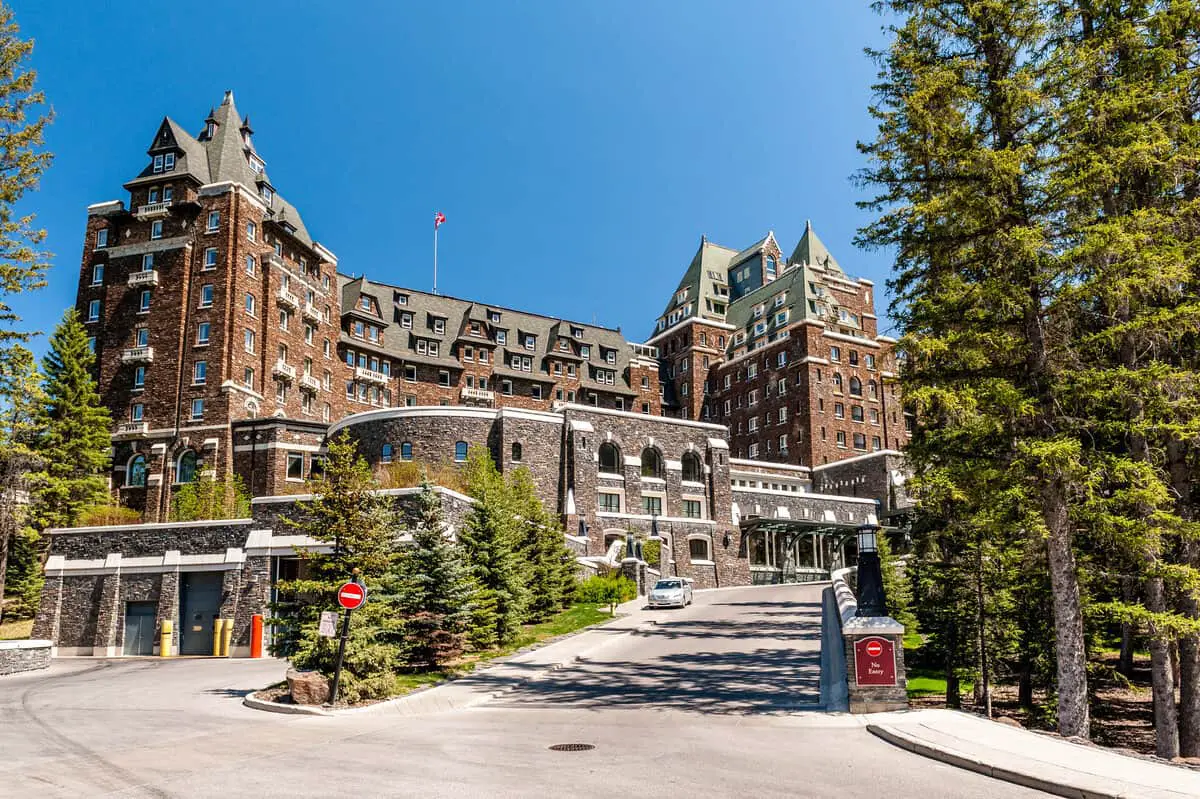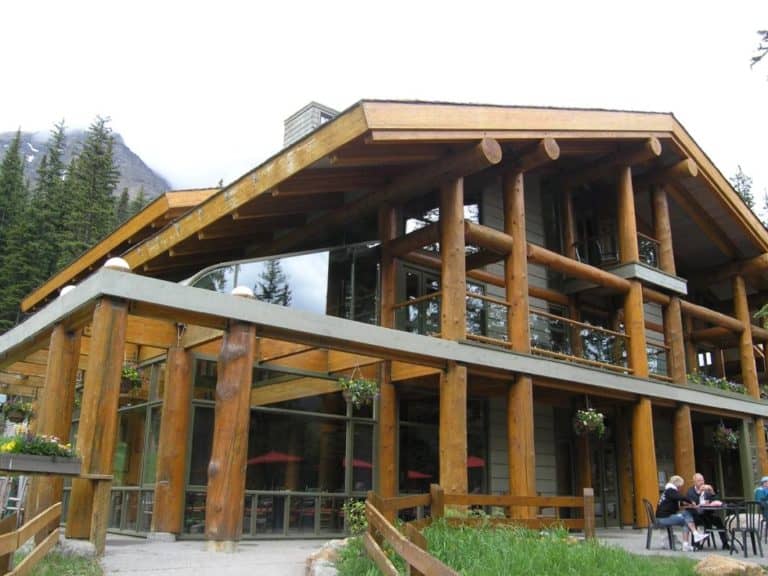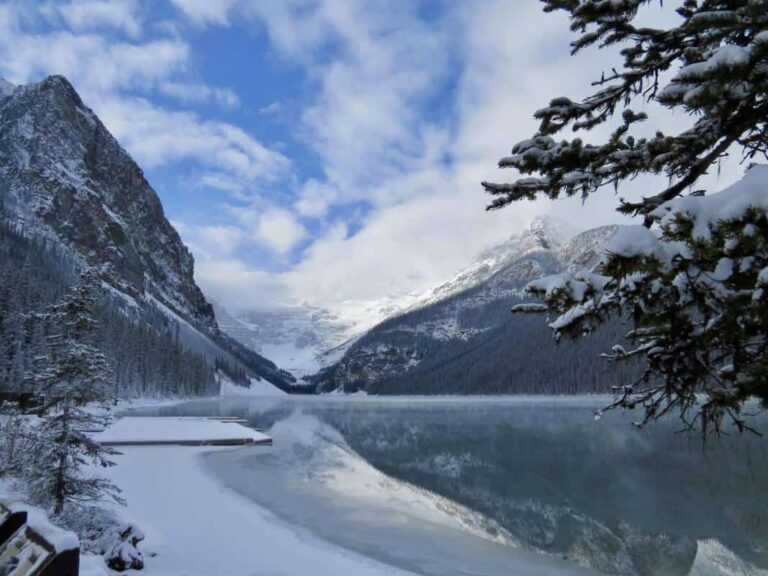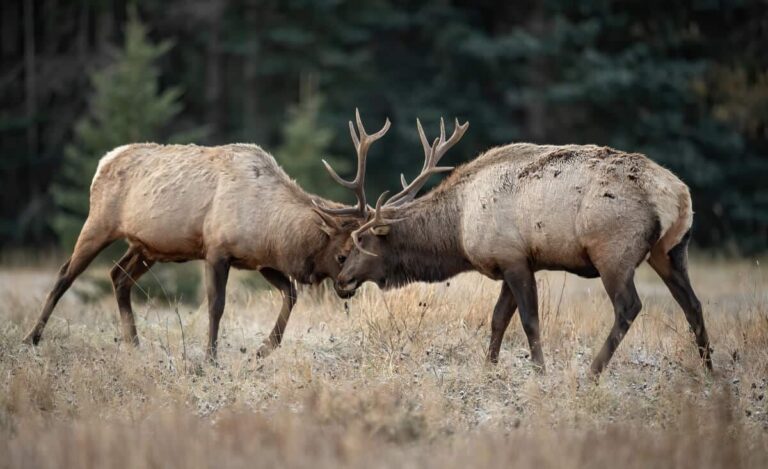The Truth About Banff Seasonal Work Wages in 2025

One of the first things you want to know before starting a job in Banff is how much money you’ll make. You’re entitled to a minimum hourly wage of 15 Canadian dollars. The average for seasonal jobs in Banff is CAD 17.72 (2023). In this post, you’ll read what these numbers mean for earning a living in the Rockies.
I get it; you probably want to come to Banff to have the time of your life. Earning lots of money? You’ll worry about that later in life.
Still, it is good to know what to expect. It helps you figure out how much you can do with your future employer’s salary. So let’s dive in.
Does Banff Have its Own Minimum Wage?
The town of Banff does not have its own minimum wage. This means that local employees are entitled to the Alberta minimum. As of 2023, the province’s minimum wage is CAD 15 per hour.
Although there is a federal minimum wage (CAD 15.55), it only applies to people working in sectors that are not federally regulated. Tourism is one of the many sectors that aren’t. Federally regulated sectors include banks, postal services, interprovincial transportation, and federal Crown companies.
Is the Minimum Wage Enough to Make a Living in Banff?
It might be. However, Banff’s high cost of living makes it hard to get by on the minimum wage. So how do seasonal workers manage, you might wonder.
Staff accommodation is abundant in town. Many employers in Banff provide their employees with a place to stay. It allows you to rent your own room or apartment relatively cheaply.
Let’s compare living in staff housing to renting your place to stay. In the latter case, you should budget at least CAD 1200 per month for housing.
Let’s say you put in 40 hours a week at the minimum wage. That would bring in about CAD 2,500 each month before taxes. Alberta’s lowest income tax rate is 10%, which means you get to keep CAD 2,250.
After deducting CAD 1,200 for rent, you have left CAD 1050. You’ll spend roughly half the remaining sum on groceries because they will run you about CAD 140 weekly for one person. This works out to about CAD 600 per month. You now have about CAD 450 left to pay for your utilities, telephone, internet, leisure activities, etc.
So yes, living off the minimum wage when renting a place is feasible. But you will probably always need to budget your activities. Driving a car might already prove too expensive (though in Banff, you don’t need one per se as the town is very compact).

When you work a job with staff accommodation, count on spending between CAD 350 and CAD 600 for the place. Although you may have less living space, you will still have hundreds of dollars more to spend each month than if you were to rent a house in Banff.
Besides, you’ll probably spend most of your leisure time outside in Banff, so how much living space do you really need?
How Does the Banff Minimum Wage Compare to Other Provinces in Canada?
As said, Alberta’s minimum wage is currently (2023) CAD 15 per hour. This is higher than the minimum wage in several other provinces. However, the minimum wage is higher in British Columbia, Ontario, Yukon, Northwest Territories and Nunavut.
Here’s a table with all minimum wages in Canada:
| PROVINCE/TERRITORY | MINIMUM WAGE |
|---|---|
| Federal | $15.55 |
| Alberta | $15.00 |
| British Columbia | $15.65 |
| Manitoba | $13.50 |
| New Brunswick | $13.70 |
| Newfoundland and Labrador | $15.20 |
| Nunavut | $16.00 |
| Ontario | $15.50 |
| Prince Edward Island | $13.70 |
| Québec | $14.25 |
| Saskatchewan | $13.00 |
| Yukon | $15.70 |
Who Sets the Minimum Wage for Banff?
In Canada, minimum wages are set by the provincial governments (except for the territories, where the 10 Canadian provinces are mainly responsible for the minimum wage).
As Banff is part of the province of Alberta, the Banff minimum wage is set by the government of Alberta. So all employees who work within the Town of Banff must be paid the Alberta minimum wage. Currently (2023), there are no plans to increase the minimum wage.
Historical Minimum Wages for Banff 1999 – 2023
The minimum wage in Alberta increased substantially between 1999 and 2023. In 1999, the minimum wage was just $5.90 per hour. By 2018, it had risen to $15.00 per hour. The graphic below gives you a nice overview of the development of the minimum wage in Alberta.
| DATE | MINIMUM WAGE (CAD) |
|---|---|
| 1 October 2018 | $15.00 |
| 1 October 2017 | $13.60 |
| 1 October 2016 | $12.20 |
| 1 October 2015 | $11.20 |
| 1 September 2014 | $10.20 |
| 1 September 2013 | $9.95 |
| 1 September 2012 | $9.75 |
| 1 September 2011 | $9.40 |
| 1 April 2009 | $8.80 |
| 1 April 2008 | $8.40 |
| 1 September 2007 | $8.00 |
| 1 September 2005 | $7.00 |
| 1 October 1999 | $5.90 |
What Is the Average Hourly Wage in Banff?
After going over the details of Banff’s minimum wage, let’s take a look at how much seasonal workers in town make on average.
While you can find some interesting data online indicating that the average hourly wage in Banff is more than CAD 33, this is not realistic for the vast majority of seasonal workers.
Most jobs in Banff are seasonal, and the wages reflect that. Retail and hospitality workers often rely on tips to supplement their income. There are some high-paying jobs in Banff, but they are usually managerial positions.
Overall, the cost of living in Banff is high, so workers need to make a good wage to cover their expenses. That’s why many people who work in Banff live in neighboring communities where the cost of living is cheaper.
To give you a good idea about what you’ll earn, I looked up wages for several seasonal jobs in Banff in 2022-2023.
| JOB TITLE | WAGE PER HOUR (CAD) |
|---|---|
| Baker | $17.00 |
| Barista | $16.00 |
| Cashier | $15.00 |
| Class 4 Shuttle Driver | $21.00 |
| Cleaner | $18.00 |
| Cook | $18.00 |
| Dishwasher | $16.50 |
| Food and Beverage Server | $17.00 |
| Food Counter Attendant | $15.50 |
| Food Preparer | $17.50 |
| Food Service Supervisor | $18.30 |
| Hotel Front Desk Clerk | $20.00 |
| Housekeeping Room Attendant | $16.53 |
| Kitchen Helper | $15.00 |
| Light Duty Cleaner | $18.00 |
| Restaurant Supervisor | $19.00 |
| Retail Sales Clerk | $15.00 |
| Shipper/Receiver | $20.50 |
| Ski Lift Attendant | $17.00 |
| Tour Guide Supervisor | $23.60 |
The average hourly wage for these 20 jobs is CAD 17.72, which is CAD 2.72 more than the minimum wage.
All wages represent the lowest wage I could find for the particular job. In most cases, I found more than one vacancy.
How Much Income Tax Do You Pay in Alberta?
Unfortunately, you need to pay income tax on your earnings. Yes, also in Canada. In Alberta, the personal income tax rates for 2021 are as follows:
- 10% on the first $142,292 of taxable income
- 12% on the next $28,459
- 13% on the next $56,917
- 14% on the next $113,834
- 15% on the taxable income over $341,502
It works like this: assuming you make less than $142,292 a year, you would pay 5% of your income in taxes. If you make between $142,292 and $170,751 a year, you would pay 12% on the portion of your income over $142,292, and so on.
As a temporary worker in Banff, you’ll stay well below an annual income of CAD 142,292, so you’ll pay 10 percent in income tax.






